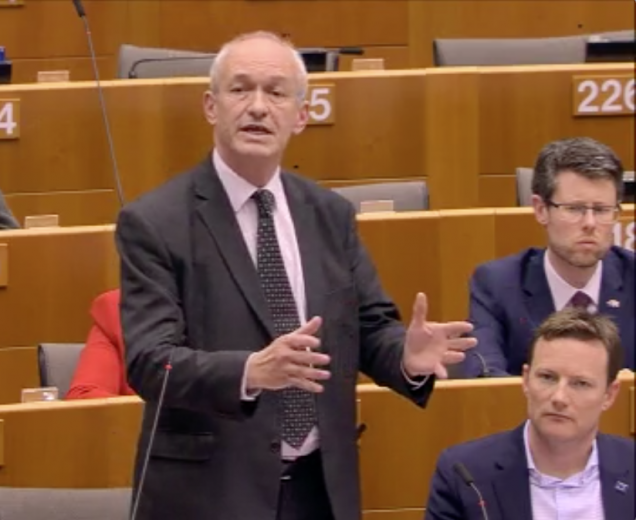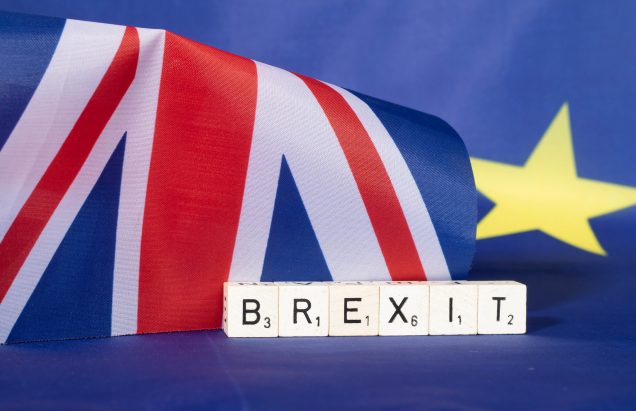In yesterday’s Sunday Telegraph, David Cameron wrote a piece outlining his professed intentions about Britain’s future in Europe.
The article is particularly irresponsible in its first section, where Cameron (or rather, I suspect, his ghostwriter) deliberately conjures up several eurosceptic myths which he knows full well are either highly misleading or downright false — but he sneakily sidesteps responsibility for doing so by pretending that he’s simply repeating “people’s worries”. It’s a neat trick for sure, but I suspect people wouldn’t be so worried by these eurosceptic myths if politicians like Cameron didn’t keep parroting them in the right-wing media!
Here is the article again, with my observations and comments added in red.
The British people now have a very clear choice: if you want a referendum on whether Britain should stay in the EU or leave, only the Conservative Party will guarantee to hold one. But it will only be a choice between a Tory version of Europe or no Europe (and at a particularly damaging time for our economic recovery).
If I am Prime Minister after the election, I will negotiate a new settlement for Britain in Europe, and then ask the British people: do you wish to stay in the EU on this (Tory) basis, or leave? I will hold that referendum before the end of 2017, and respect the decision.
A year ago, in a speech at Bloomberg, I set out my plan to reform the European Union and change Britain’s relationship with it. Britain is not alone in our view that change is needed. No one has argued harder than Angela Merkel that the European Union needs to reform if it is to compete in the modern world. My Dutch counterpart has
coinedrepeated the phrase “Europe if necessary, national where possible”. Actually, this rule, known as the ‘principle of subsidiarity’, has long been enshrined as a fundamental principle of the EU: see Article 5 of the Treaty on European Union. We share a view that the status quo is not working, and we intend to change it. Except that the Dutch expressly do not want to change the treaties, nor do they have any truck with most of the ideas floated by Conservative backbenchers.I completely understand and share people’s concerns about the European Union. Our businesses value the single market. But they find the degree of European interference in our everyday life excessive. This rhetoric about “interference” needs to be taken with a large pinch of salt, given that it’s member countries themselves who decide, by unanimity, on the remit of the EU — and all EU legislation requires the approval of a council of ministers from each country. People are worried that Britain is being sucked into a United States of Europe (how? That could only happen with Britain’s consent!); that may be what some others want, but it is not for us. They see decisions being taken far away, rather than by their elected representatives in Parliament (which is why we only take decisions at European level if needed: see Article 5 again). And they worry that European rules have allowed people to claim benefits without ever working here (er, not quite, though some clarification is warranted here). As a result of the government’s (and much of the media’s) constantly mischievous portrayal of the EU as a threat, democratic consent for Britain’s membership has worn wafer thin.
And although it would not be a very smart negotiating tactic to lay all Britain’s cards on the table at the outset — because the Conservative party could never agree what they should be! — I know people want more detail about the specific changes we will seek. So I can confirm today that tackling these concerns will be at the heart of our approach.
Let me set out some of the key ones. Powers flowing away from Brussels, not always to it. This is already provided for in the treaty, thanks to the last Labour government, in Article 48(2). National parliaments able to work together to block unwanted European legislation. Already provided for in the treaty, thanks to the last Labour government, in Article 12 and protocol 2. Businesses liberated from red tape (but red tape is generally reduced by having common rules for the common market instead of 28 different sets of rules!) and benefiting from the strength of the EU’s own market — the biggest and wealthiest on the planet (indeed) — to open up greater free trade with North America and Asia. Our police forces and justice systems able to protect British citizens, perhaps by making use of the existing European Arrest Warrant which makes it much easier to get suspects sent back from other EU countries for trial?, unencumbered by unnecessary interference from the European institutions, including the ECHR (oh please — the ECHR is a totally separate body from the EU, as Cameron well knows!). Free movement to take up work, not free benefits. Support for the continued enlargement of the EU to new members but with new mechanisms in place to prevent vast migrations across the Continent.
And dealing properly with the concept of “ever closer union”, enshrined in the treaty, to which every EU country now has to sign up. It may appeal to some countries. But it is not right for Britain, and we must ensure we are no longer subject to it. This is a mischievous quote out of context. The agreed full text says: “ever closer union among the peoples [not the states!] of Europe, in which decisions are taken as closely as possible to the citizen in accordance with the principle of subsidiarity”. This text, far more nuanced than Cameron wants to pretend, was negotiated by the Conservative government of John Major. Anyway, it’s a declaratory preamble which has no legal effect — yet modifying it would require a treaty change, which every EU country would have to ratify.
So, yes to the single market. Yes to turbo-charging free trade. Yes to working together where we are stronger together than alone, as we are doing right now on Ukraine. Yes to a family of nations, all part of a European Union — but whose interests are guaranteed, inside the euro or out.
To repeat the clichés: No to ever-closer union. No to a constant flow of power to Brussels. No to unnecessary interference. And no, it goes without saying, to the euro, to participation in eurozone bailouts or notions such as a European Army which no goverment has proposed!.
This is an ambitious agenda for a new European Union. Delivering it will take time and patience, as well as strong relationships with our key allies and goodwill — not shouting from the sidelines. It will require a negotiation with our European partners. Some changes will best be achieved (“best”? does he mean to suggest there are other ways?) by alterations to the European treaties which will need the agreement of every single government, and national ratification in every single country — others can be achieved by different means.
But when we achieve it, we will have transformed the European Union and Britain’s relationship with it. I would then campaign for Britain to remain in this reformed EU in 2017. And only then? Does Cameron’s position really depend on such cosmetic changes?
[…]
And we have already shown that we can change Europe. In December 2011, I vetoed a new EU Fiscal Treaty that would have damaged Britain’s interests. No you didn’t: you just decided not to join a treaty that went ahead anyway, even though you professed to agree with its objectives. Whereas Labour jeopardised our rebate (no it didn’t) and weakly (?!) signed Britain up for eurozone bailouts (loans, when it was in our interests to stop a default that would have damaged Britain’s economy), we put a stop to that, the first ever power returned from Brussels to Britain. And a year ago, we cut the EU budget for the first time in history — when everyone told us it was impossible. Nice try, but what actually happened was that Labour defeated you in the Commons and mandated you to vote for a reduction — one which which was on the cards anyway! We have ensured that key decisions on banking union require Britain’s consent, protecting our position in the single market and maintaining the competitiveness of the City of London. We have reformed fisheries policy, and launched ground-breaking negotiations on a massive EU-US trade deal.
We have shown in the past four years — at home and in Europe — that when we set out a clear objective and a plan to achieve it, we deliver. We are clearing up the mess Labour left behind (?!).
This nation has got a grip of its public finances, and is now one of the fastest growing economies in the G7. By our own exertions, we have become masters of our own destiny again.
Now let us bring the same determination and tenacity that we have applied to turning our economy around to the task of changing the European Union.






5 Comments
4 Pings & Trackbacks
Pingback: Work for the EU? Not likely!
Pingback: The EU for Christians
Pingback: Juncker for Europe? - Richard Corbett
Pingback: The war behind the smokescreen - Richard Corbett